

We may earn revenue from the products available on this page and participate in affiliate programs. Learn More ›
Home Advice You Can Trust
Tips, tricks & ideas for a better home and yard, delivered to your inbox daily.
By signing up you agree to our Terms of Service and Privacy Policy.
Important Fixes to Entice Prospective Buyers
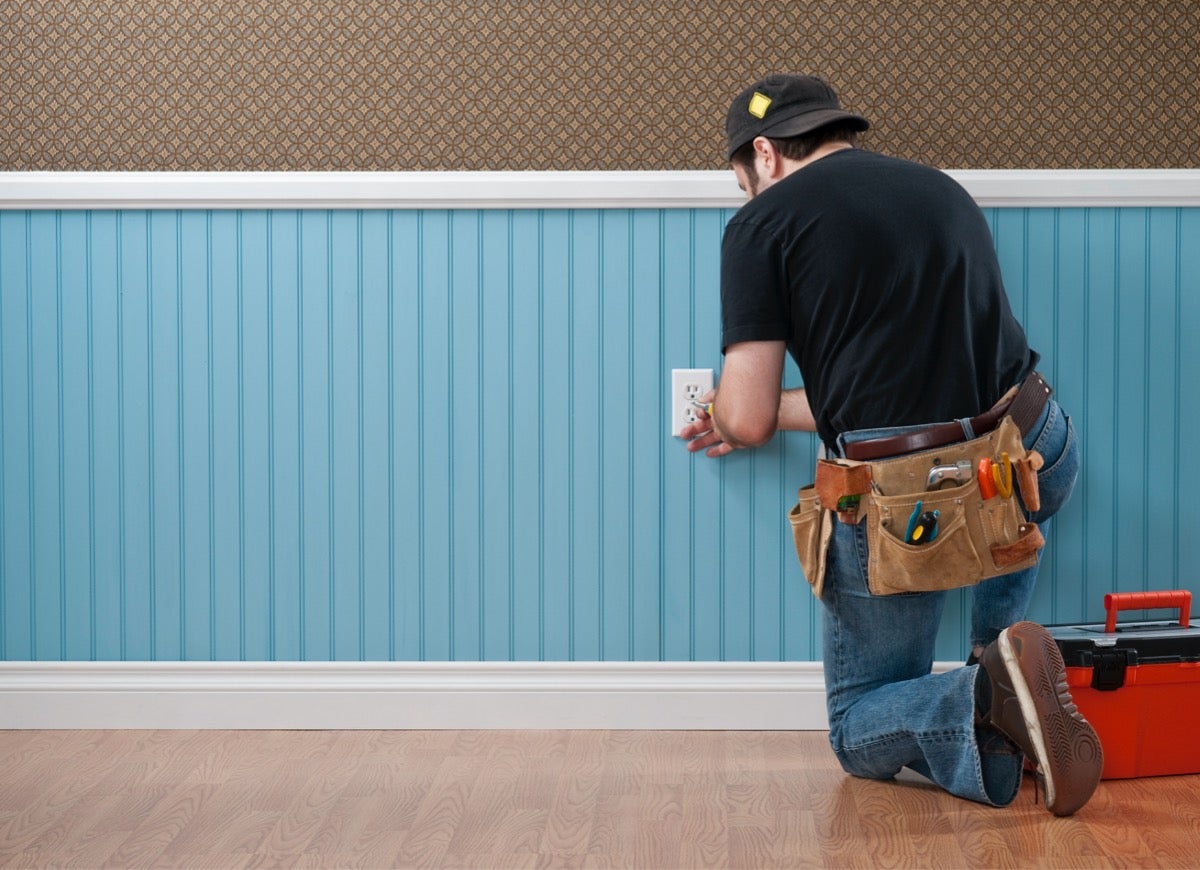
Selling a home can seem like a difficult process, but there are many fixes you can handle in order to make your home appealing to potential buyers and avoid problems during a home inspection. Some fixes are relatively simple, like patching holes and cracks in the wall or replacing leaking faucets, but other repairs may require an experienced professional to complete the job properly. Don’t let these 10 defects deter potential buyers when you can make the necessary changes before putting your home on the market.
Patching Holes and Cracks
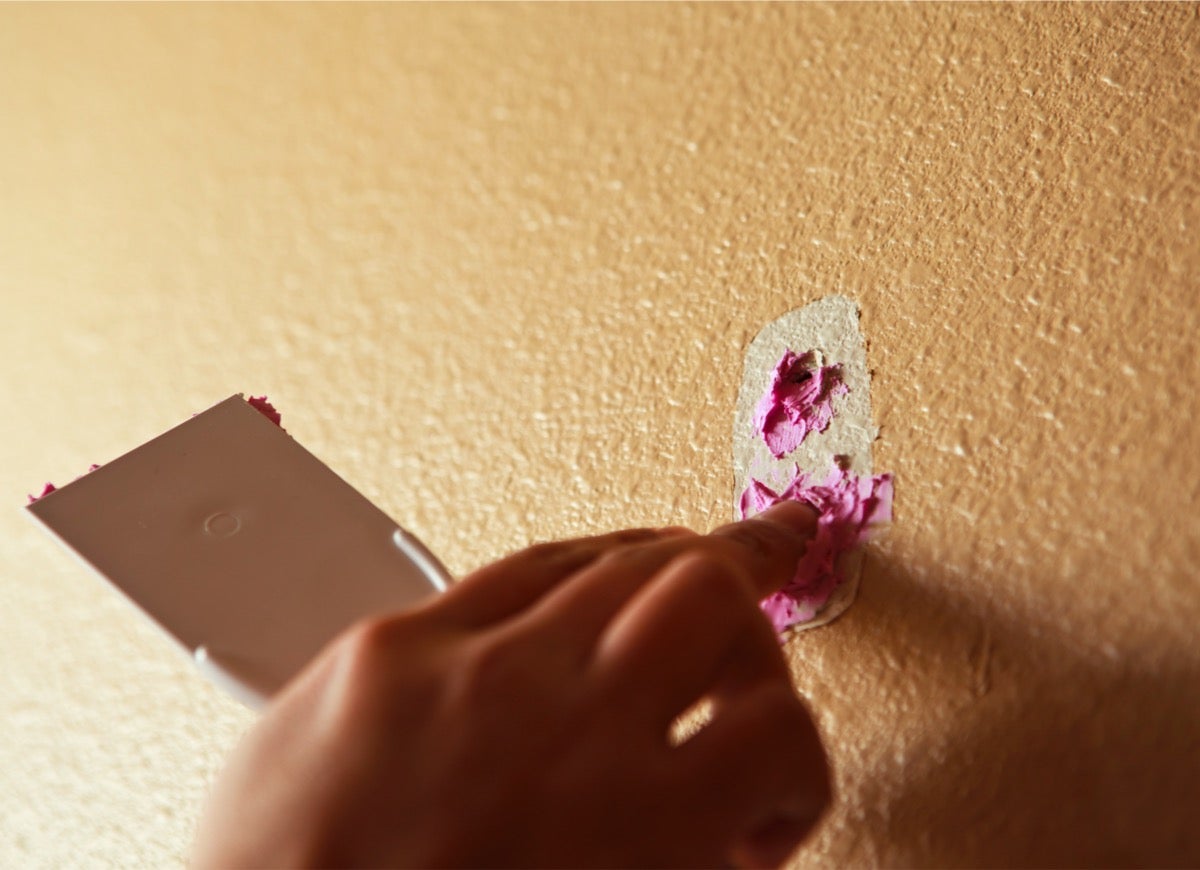
Holes can be caused by a variety of wall hangings, like pictures, posters, and television mounts. When these decorations are taken down your walls might be riddled with holes, and these holes will really stand out to a prospective buyer. DIYers can typically patch these holes on their own with some drywall compound and a putty knife. Larger cracks in the ceiling, walls, window frames, or door frames are more difficult to fix, but experienced DIYers should still be able to manage this repair on their own. If there is too much damage or you don’t have the time to fix these holes and cracks, hire a professional carpenter or drywaller to make the repairs.
Repairing or Updating Appliances
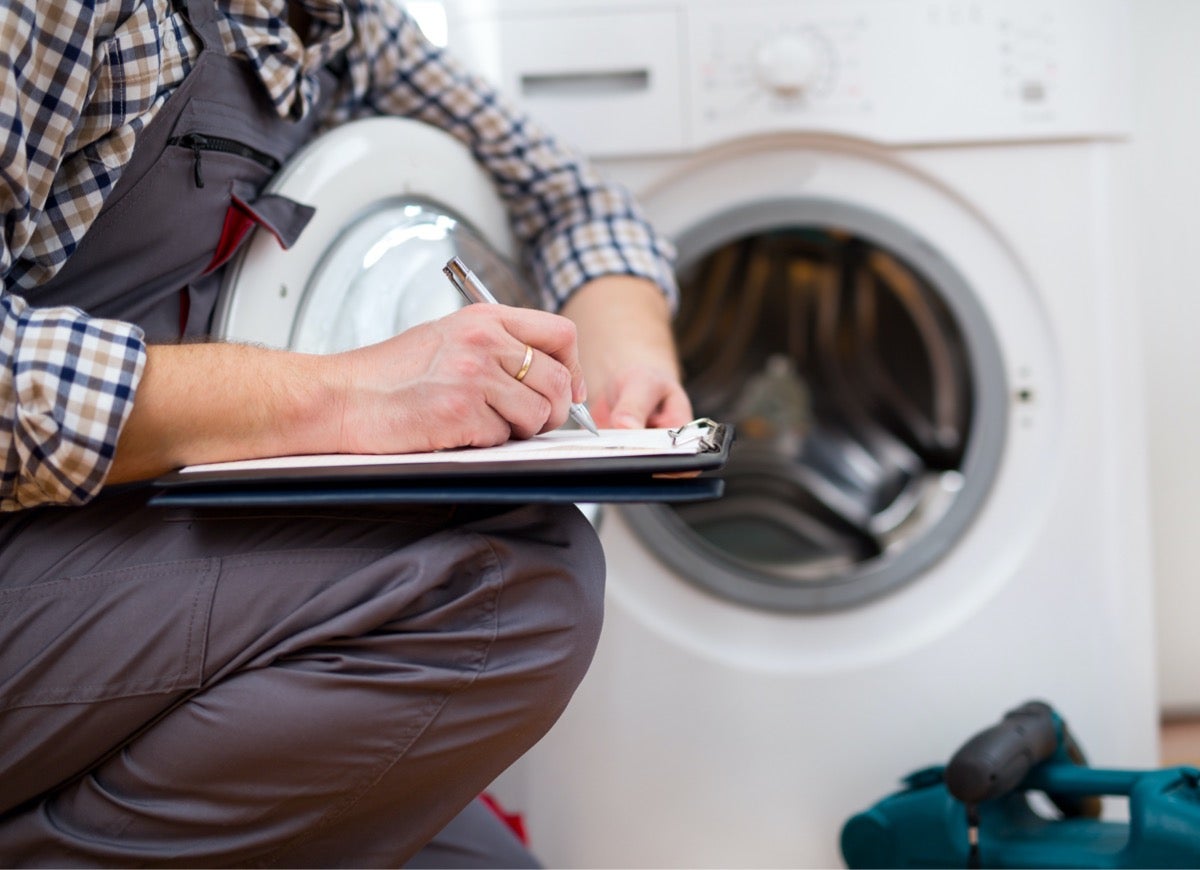
Large appliances like dishwashers, refrigerators, ovens, washers, and dryers are often sold along with a home; however, if you currently have old or damaged appliances, your property may not fetch as high a price as it could. It’s a good idea to get the appliances in good working condition and clean them up so that they look appealing before putting your home on the market. If your appliances are old or are not functioning, it may be better to replace them. While replacing the appliances is typically more expensive than getting them fixed, updating the refrigerator, stove, or any other large appliances will add to the appeal of your home and can be highlighted by your real estate agent as a main selling feature.
HVAC Maintenance
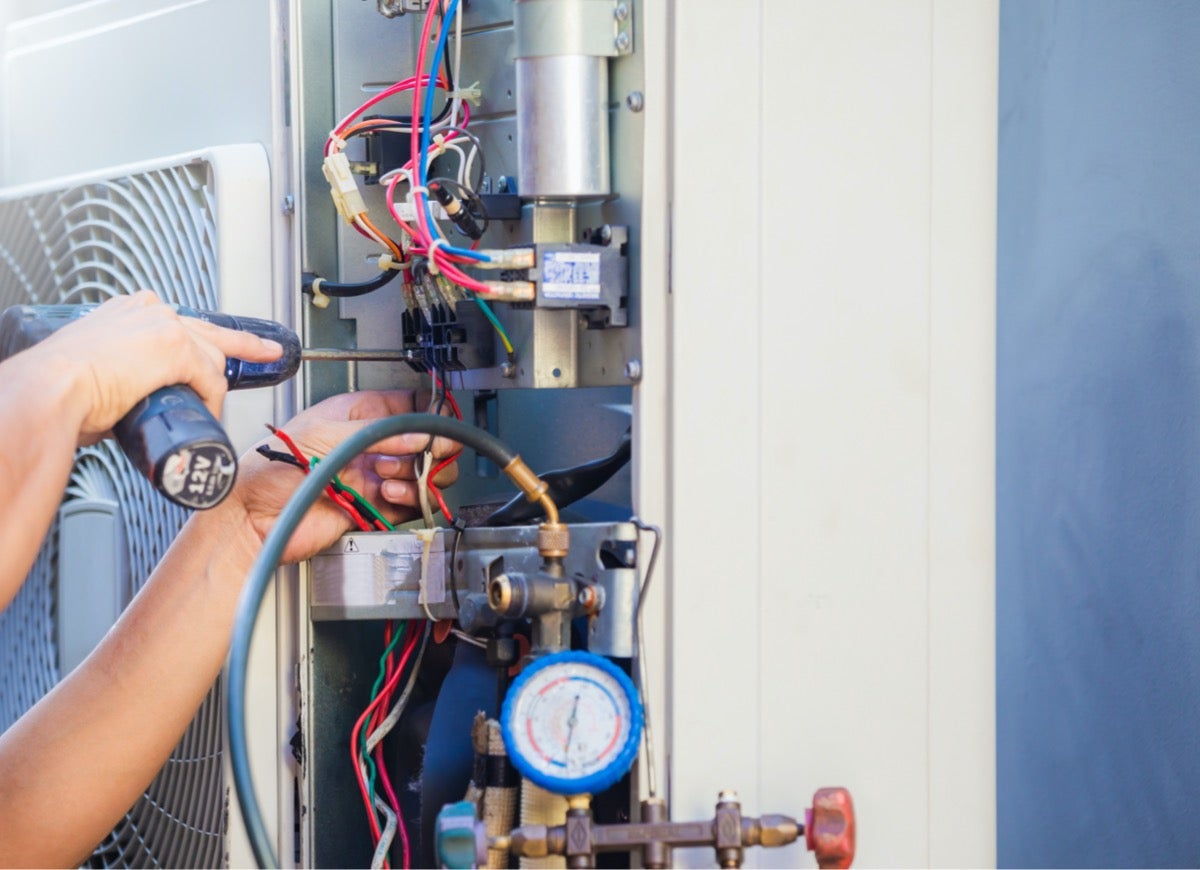
Before planning to put the home on the market, have an HVAC professional come in to inspect the system for issues and perform regular maintenance, like cleaning the ducts and checking the electrical system. According to Certified Master Inspector Hubert Miles, “During the home inspection, the assessor will usually take note of the electrical systems that lead up to HVAC systems, the ductwork that runs through the home, furnace faults, and the overall ventilation of the property.”
Changing the air filter is one part of the system that can be taken care of by a DIYer. The air filter should be replaced every 90 days to help prevent damage to other parts of the heating and cooling system. However, many people don’t follow a regular maintenance schedule for the furnace, so air filters can often be left for years without being replaced, preventing air from passing through and shortening the life of the HVAC system.
Door Handle Replacement
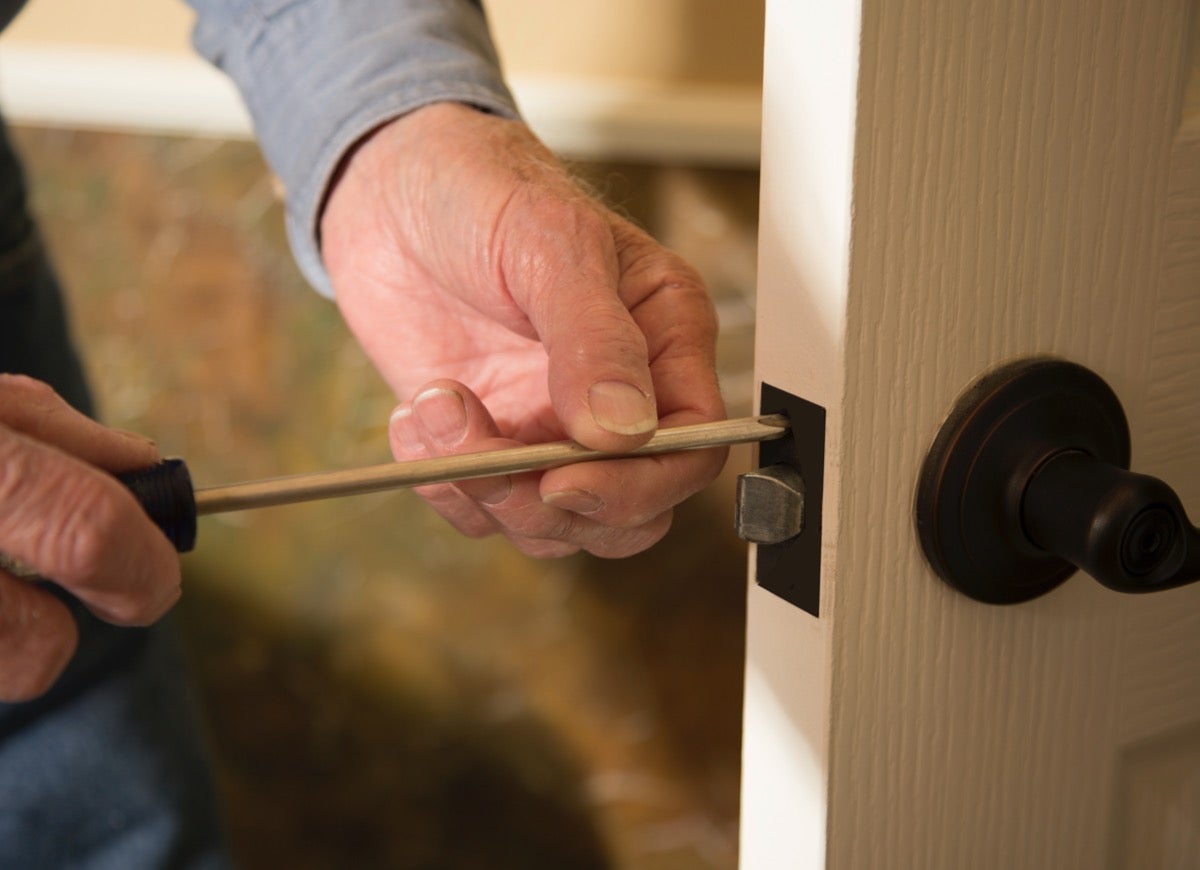
Most homes are equipped with door handles or doorknobs to open the doors around the house. When they work well, they go almost completely unnoticed. However, there are few things more frustrating than not being able to get into or out of a room. So when door handles stick in the doorframe or don’t open the door with the first, second, or even the third turn, they can become detrimental to the sale of a home.
Replacing a door knob or handle is a relatively simple repair. Upgrading bathrooms and bedrooms with locking door handles, and installing heavy-duty door handles on the front and back doors can make a positive impact on potential buyers, as does ensuring that your interior door knobs all match.
Faucet Repair or Replacement
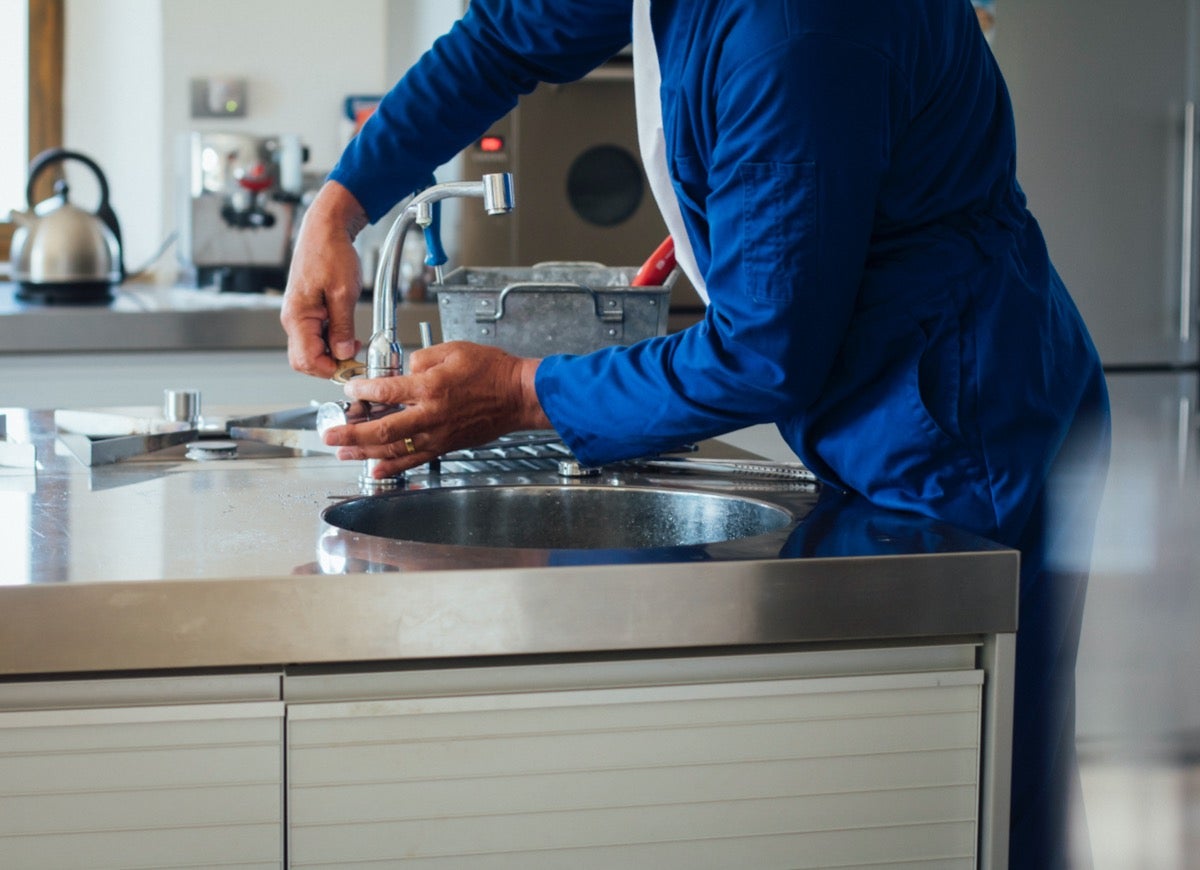
DIYers with some plumbing experience will find it relatively easy to replace bathroom and kitchen faucets. Some faucets can have one handle that balances hot and cold water, while other products will have two handles. To make the kitchen more appealing, consider installing a faucet with a separate pull-out sprayer that can be used for rinsing the dishes.
Faucets can last for years without any problems, but slight leaks at the handle create water spots and places for mold to grow, spread, and develop on the handle, faucet, and sink. Leaks from the faucet into the sink may be less damaging to the surrounding area but can cause unnecessary increases on the water bill, and the constant drip, drip, drip is noticeable to potential buyers.
Update Faceplates
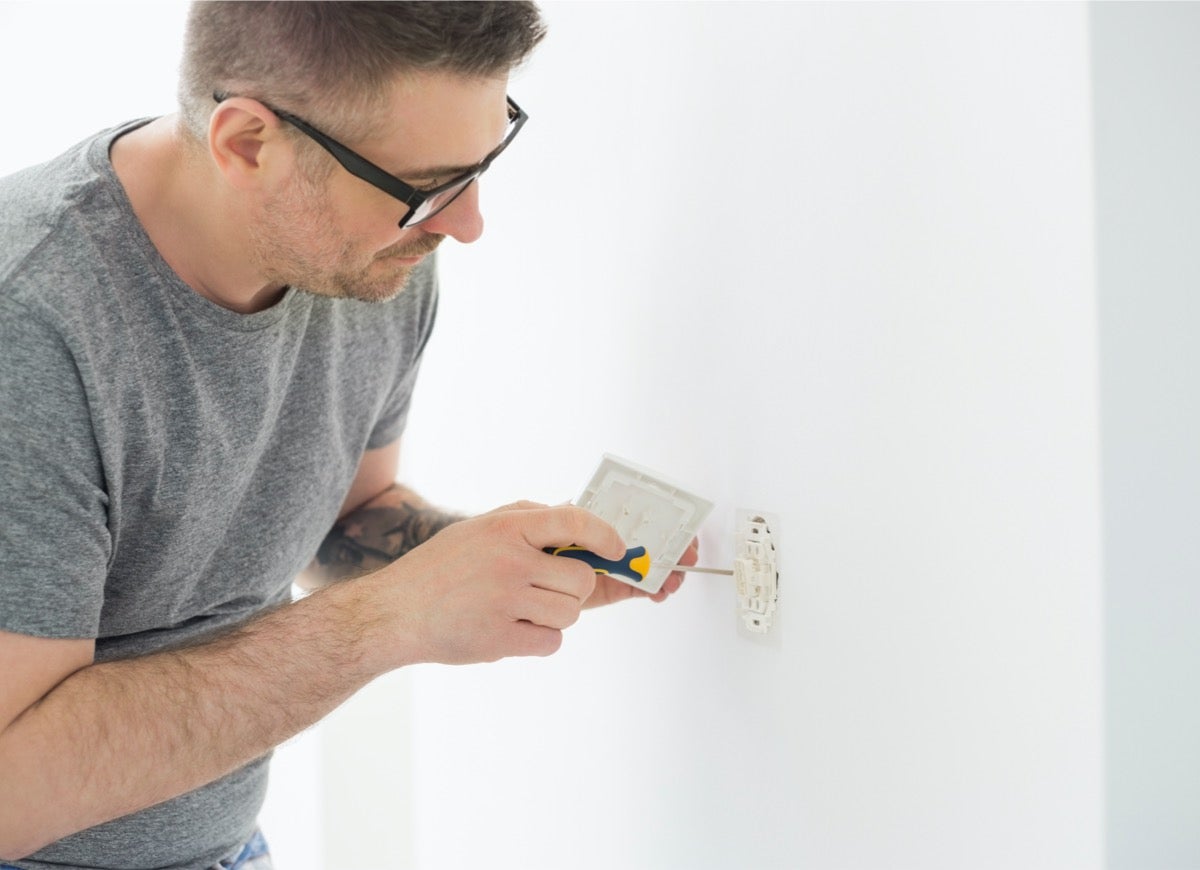
Electrical outlets can be installed on the wall, ceiling, or even the floor in a home, but they are most commonly located on the walls just above the baseboards or at waist height in the kitchen or office. The wiring of these outlets is typically protected by plastic or metal faceplates that can become cracked, chipped, stained, or bent over time.
While changing the faceplates is an aesthetic improvement, it’s also an affordable and easy safety update that almost anyone with a screwdriver can complete. The faceplates can also be changed to a different color in order to match a new wall color or room aesthetic.
Replace Missing or Expired Smoke Alarms
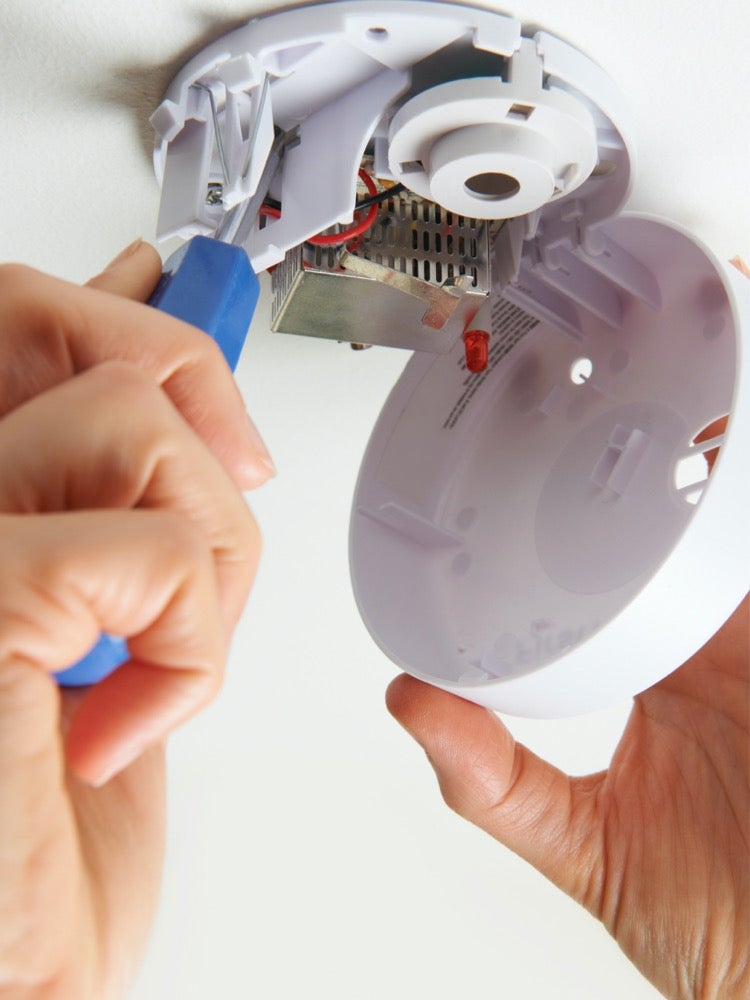
Smoke alarms are a necessary safety device to have in the home. It is mandatory to have a working smoke alarm on every floor of the building, though the National Fire Protection Association (NFPA) recommends installing a smoke alarm on every floor, as well as installing one in every bedroom and outside of each sleeping area to ensure that sleeping individuals are awakened in the event of a fire. In addition to checking the number of smoke alarms, a home inspector will verify the placement of the smoke alarms, their age, and whether each alarm works; so before putting the home on the market, replace missing, damaged, or outdated smoke alarms.
Fix Any Existing Water Damage or Mold Problems
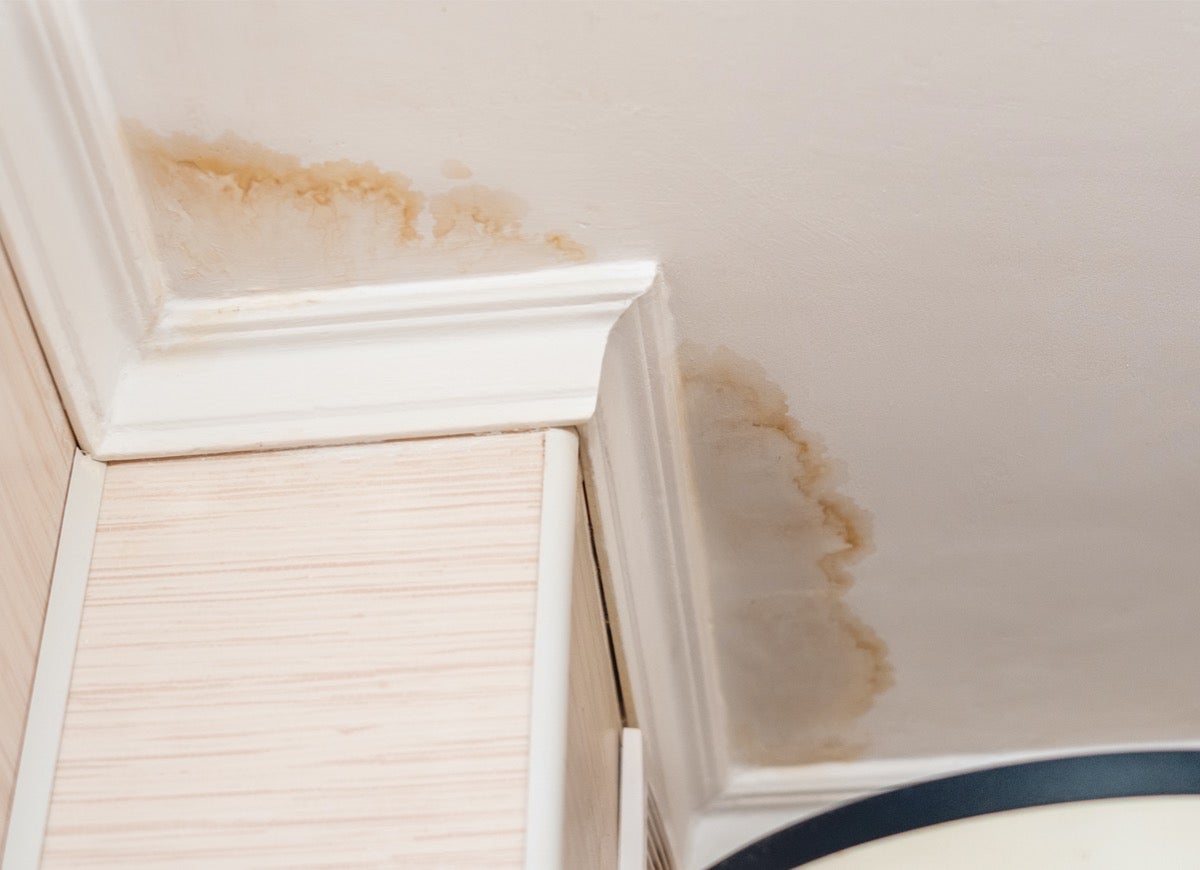
Certified home inspector Hubert Miles notes that “when water gets into a home’s foundation and has no real way of draining out, it can cause a wide range of issues. Most of these problems are significant red flags when buying a property.” Water damage can be caused by leaks inside the home, through the foundation, walls, or roof. It can also be a result of improperly vented plumbing, air ducts, or bathroom fans. High humidity levels can also contribute to water damage due to increased condensation on cooler surfaces, like windows, doors, and pipes. Find and fix the source of the water damage, then make repairs to the damaged area, ensuring that small patches of mold are carefully removed (be sure to use proper respiratory protection). For removing larger patches of mold, hire a restoration company that specializes in water damage.
Repair Faulty Wiring
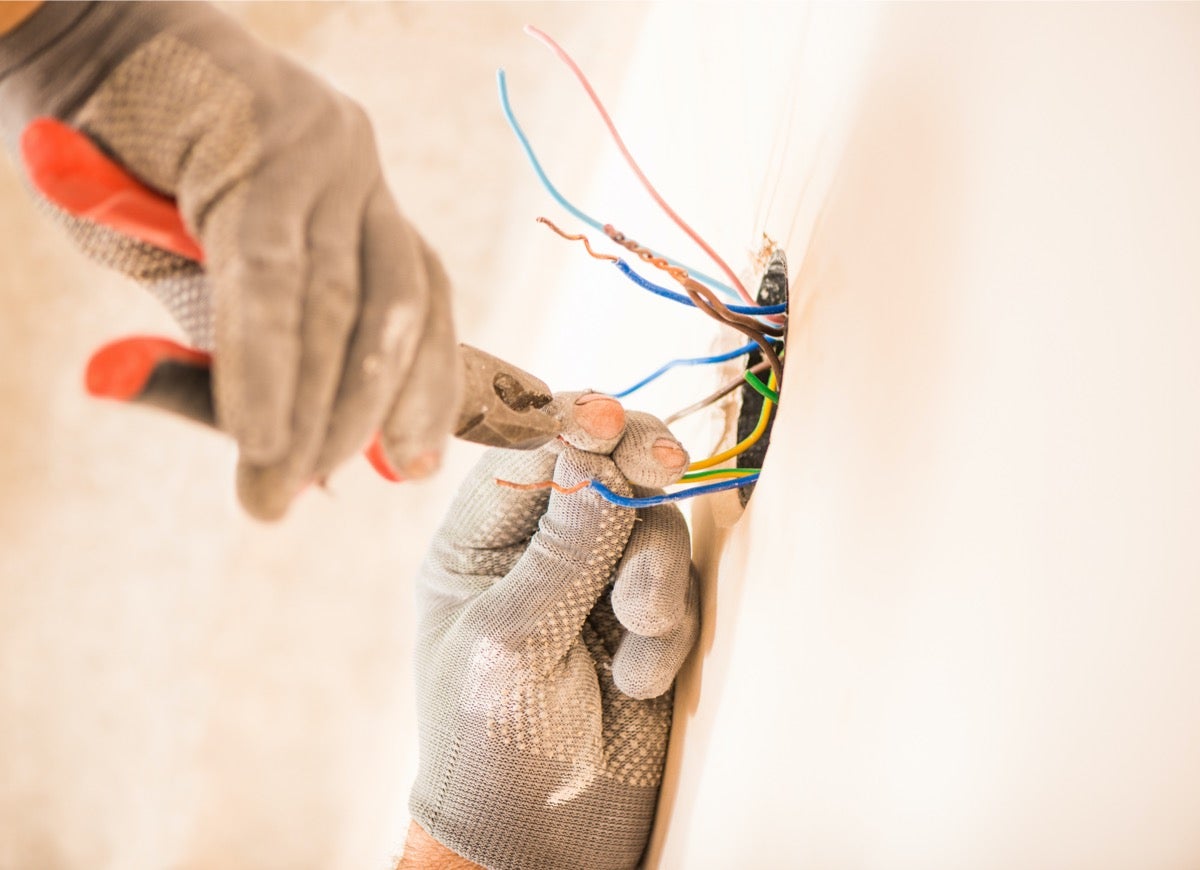
Not only is faulty wiring a major fire risk that should be dealt with immediately, but it also stands out on a home inspection and is relatively noticeable during showings. Potential buyers don’t want to move into a home that might have a higher risk of burning down due to a faulty switch sparking and igniting the insulation in walls. If you don’t have the experience to repair faulty wiring, don’t try to DIY the solution. Contact a professional electrician and get the issue fixed properly to protect yourself and future owners.
Exterior Siding and Roofing Repairs
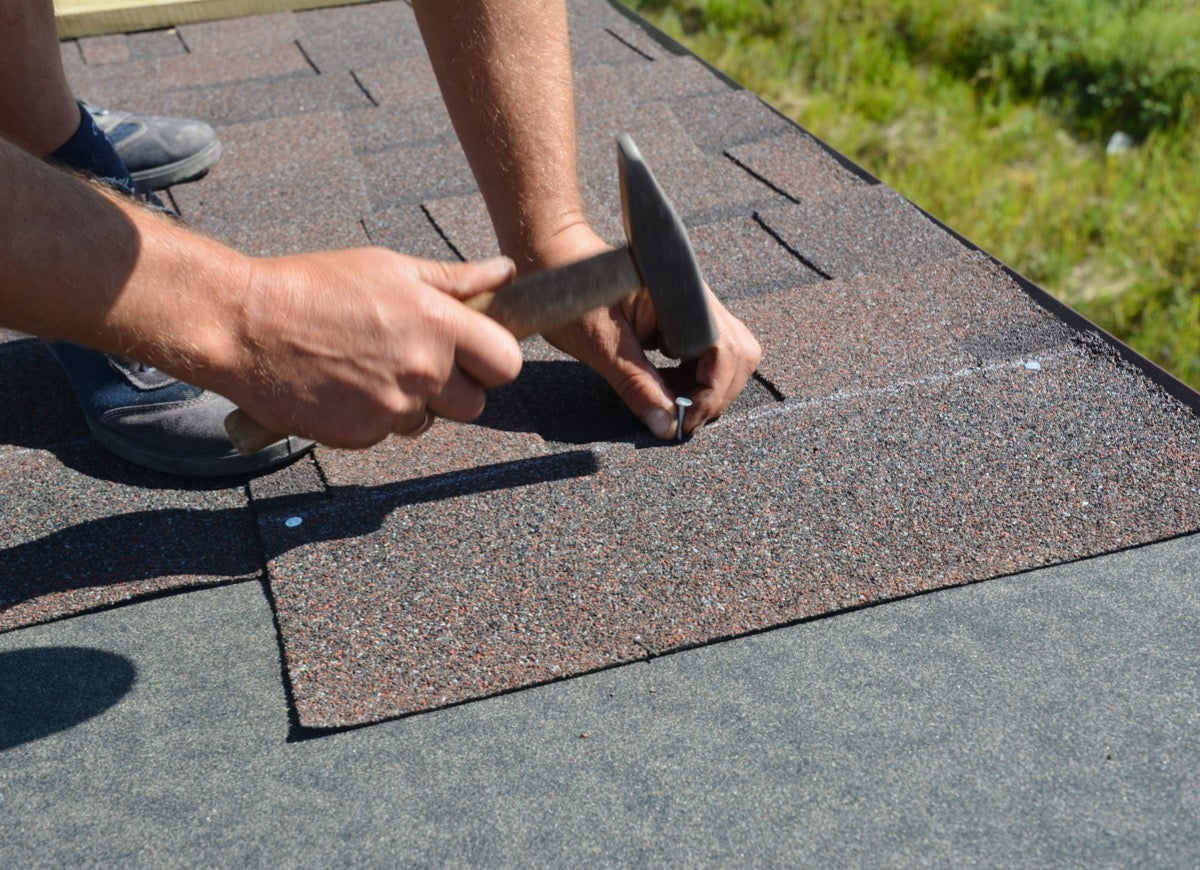
When a prospective buyer pulls up to the home, the first things they will notice about your house are the roof and the exterior walls. Damaged roofing tiles, whether loose or torn, can be enough to drive away potential buyers because these signs indicate that the roof has been neglected and that there may be leaks and water damage in the home. Dirty or damaged siding and brick also turn people away in a hurry, so it’s necessary to pressure wash the home’s exterior and make repairs to the siding, brick, and roof. If you aren’t comfortable with replacing roofing tiles or fixing exterior siding, consider hiring a professional company to get the job done quickly and correctly.

The Homeowner Survival Kit
This year’s Bob Vila Approved is a hand-picked curation of tested, vetted, must-have essentials for surviving homeownership today.